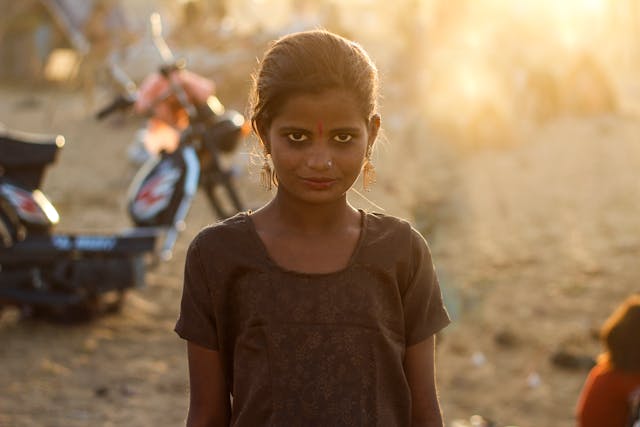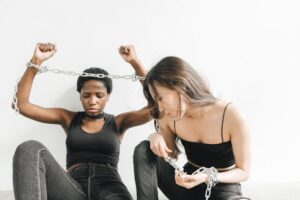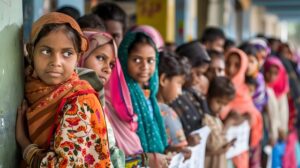Introduction
Religious intolerance, gender discrimination, or issues like social injustice are generally discussed theoretically. But when these affect every step of someone’s life, then these are not just theories—they are a real torment. My life story begins through poverty and discrimination, where studying for a girl is seen as unnecessary, early marriage for girls seems socially mandatory, and loving someone of a different religion!—that is seen as a kind of crime. Yet, even from within deprivation and discrimination, my journey was built on the basis of determination and hope. In the light of this personal experience, I want to highlight the broader challenges faced by South Asian women, in the context of human rights theory, international commitments, and global statistics.
Main Discussion
Poverty, gender and the right to education
In the family where I grew up, surviving well was the biggest challenge. And the dream of education for such a family’s daughter was seen as a luxury. This is not just my story—according to UNICEF data, in Bangladesh about 51.4% of girls are married before the age of 18, most of them against their will. Bangladesh has the 8th highest prevalence of child marriage in the world and highest prevalence in Asia. As a result, their education stops. Coming from such a family, despite financial shortages and repeated failures, I never gave up; finally, I completed graduation in social science and MBA.
This experience reflects Article 26 of the Universal Declaration of Human Rights (UDHR), where education is recognized as everyone’s right without discrimination. Again, the Convention on the Elimination of All Forms of Discrimination Against Women (CEDAW) clearly states that any obstacles to women’s education must be removed. But in social mentality like ours, girls’ education is still seen as extra or unnecessary, which prolongs the cycle of poverty even further. My life points this reality out directly.
Gender-based harassment in the workplace
My professional life was also full of discrimination. On one hand sexual harassment by male colleagues, on the other hand harassment due to religious identity for marrying a Buddhist man—both tormented me extremely. Yet International Labour Organization’s (ILO) Convention No. 111 prohibited workplace discrimination on the basis of gender and religion. Although Bangladesh signed it, the reality is completely different. In a survey of Bangladesh National Women Lawyers’ Association (2021), it is said that 84% of working women in the country face some form of workplace harassment.
This reality silences women, forces them to leave jobs, and keeps them economically dependent. Making the workplace safe is not just a legal obligation, but also a fundamental human rights issue.
Religious intolerance and the right to love
I faced the most personal discrimination in my life from my post-marriage time, which still exists to some extent. As a Muslim woman, because of marrying a Buddhist man, I and my family have long been victims of social harassment. Yet the International Covenant on Civil and Political Rights (ICCPR) recognized the right of every human being to marry freely regardless of religion.
But in South Asian society such choices are often seen as crimes—not in law, but socially. In this, women are more affected—through separation from family, social threats, and severe contempt. My marriage was part of exercising my fundamental right, yet society turned it into a crime.
Grassroots work and determination
These experiences could not stop me. I worked as a volunteer in organizations like Bidyanondo and Jubo Kalyan Sangha, taught disadvantaged children, and I am writing on women’s rights and human rights on my website diprights.com. Human rights courses done from Amnesty International and edX enriched my knowledge, and from personal pain I found strength.
This is also consistent with the United Nations Sustainable Development Goals (SDGs), especially Goal 5: achieve gender equality and empower all women and girls. My journey shows how an individual can transform their struggle into positive change for society.
Conclusion
Discrimination is not just a personal wound; it is a reflection of social failure. My story shows how poverty, gender discrimination, and religious intolerance snatch away women’s rights. But at the same time, my experience proves that through education, determination, and activism, light of hope can also be created.
For societies like Bangladesh to move forward, international human rights commitments must be implemented not just on paper, but in reality. Without breaking social taboos, taking strict measures against workplace harassment, and advancing inclusive education, real change will not come.
My life is just a story. But it reflects the struggle of countless women, who deserve not sympathy—but equal opportunity.
Equality is not charity—it is justice. And justice delayed means justice denied.
References
-
UNICEF – Slow Progress for Adolescent Girls in Bangladesh
UNICEF -
Bangladesh National Women Lawyers’ Association (BNWLA)
prothom alo english -
International Labour Organization (ILO) Convention No. 111 – Discrimination (Employment and Occupation)
normlex.ilo.org -
International Covenant on Civil and Political Rights (ICCPR)
treaties.un.org -
Amnesty International – Free Online Human Rights Courses
Amnesty International -
edX – Human Rights Courses
edX -
United Nations Sustainable Development Goal 5 – Gender Equality
Sustainable Development Goals




